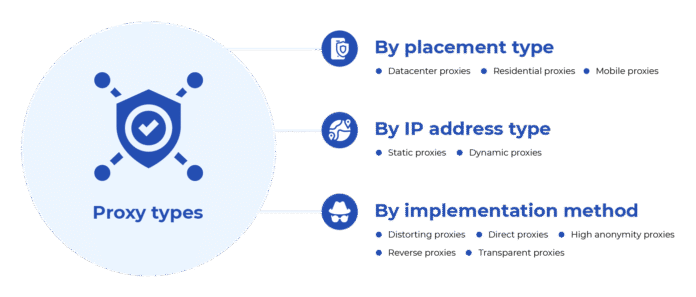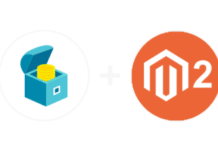As demand for scalable, undetectable web scraping grows, one question keeps surfacing among data professionals and digital marketers: Can cheap mobile proxies really deliver? While mobile IPs are prized for their high trust scores and low ban rates, affordability often raises doubts about reliability and scale. But thanks to advancements by the best proxy providers, the gap between low-cost solutions and enterprise-grade performance is narrowing.
This article explores how today’s top proxy providers are elevating the performance of cheap mobile proxies, what technical challenges remain, and whether these tools are a viable choice for intelligent, compliant scraping in a high-stakes digital landscape.
Table of Contents
Understanding the Value of Mobile Proxies
Proxies have evolved far beyond basic anonymity tools. The best proxy providers today offer expansive networks spanning residential, datacenter, and increasingly, mobile proxies—IP addresses sourced from 3G, 4G, and 5G cellular networks.
Mobile proxies are uniquely effective because:
- They’re seen as more “real” by websites, often tied to organic behavior.
- Their IPs rotate naturally, mimicking standard telecom traffic.
- They’re ideal for mobile-first platforms like Instagram, TikTok, and local mobile search.
When sourced through top-tier infrastructure, even cheap mobile proxies can provide high reliability, assuming session persistence, DNS protections, and request management are properly handled.
Market Forces Driving Proxy Innovation
According to Markets and Markets (2023), the global proxy services market is projected to exceed $1.5 billion by 2028, with mobile proxy use growing due to rising mobile web traffic and tougher anti-bot systems.
Additional research reveals:
- 22% of global proxy usage now involves mobile IPs.
- A 2022 IEEE study showed 61% fewer bans using mobile proxies vs. datacenter proxies in social media and e-commerce scraping tests.
- North America, followed by Europe and Southeast Asia, leads in demand for high-trust mobile IPs, especially for ad verification and price intelligence.
This data suggests not only a growing market, but a shifting perception: affordability doesn’t necessarily mean inefficiency, especially when mobile proxies are provisioned by the best proxy providers with proper technical safeguards.
Practical Use Cases for Cheap Mobile Proxies
Across industries, mobile proxies are no longer a niche asset:
- Retail & Price Monitoring: Global e-commerce brands use mobile IPs to simulate real shoppers, avoiding geo-fencing and frequent blocks.
- Ad Verification: Agencies use mobile proxies to ensure localized mobile ads display properly across different regions and carriers.
- Travel & Booking Engines: Dynamic fare systems often respond to mobile traffic differently; mobile proxies ensure fair and geographically accurate data collection.
- Academia & Journalism: Researchers and data journalists rely on rotating mobile IPs to access geo-restricted, mobile-optimized content over long timeframes.
- Cybersecurity Testing: Ethical hackers simulate cross-border mobile traffic to test firewalls, login throttling, and content delivery configurations.
In each of these cases, cheap mobile proxies from trusted providers can perform competitively, assuming they’re backed by sufficient rotation, session control, and redundancy options.
Key Challenges and How Top Providers Solve Them
Despite their promise, cheap mobile proxies come with challenges:
- IP Leakage: Mobile proxies can expose real IPs via DNS or WebRTC without browser protection. Advanced proxy dashboards and hardened browsers now offer built-in leak prevention.
- Geo-Inaccuracy: Some providers mislabel mobile IPs, which can derail ad targeting or market testing. Reputable proxy services use IP validation services to ensure geographic precision.
- Bandwidth Costs: While labeled “cheap,” mobile proxies may have bandwidth or rotation fees. Efficient scraping requires minimizing waste and optimizing session reuse.
- Blocking & Fingerprinting: Websites detect non-human traffic patterns. The best proxy providers combat this with machine learning-driven request throttling, header rotation, and user-agent emulation.
- Legal Compliance: Modern proxy platforms offer compliance features like IP sourcing transparency, CAPTCHA flagging, and ethical scraping clauses—especially important for mobile proxies, which may use IPs from real users.
Looking Ahead: Smarter Mobile Proxy Ecosystems
The proxy landscape is quickly evolving. By 2026, Gartner expects 40% of data access tools to integrate decentralized elements, like peer-powered mobile proxy networks. Meanwhile, AI-based modulation—where proxies adjust behavior based on past blocks—is becoming the gold standard.
Mobile proxy technology is also advancing with:
- Device Emulation: Simulating Android/iOS environments for greater authenticity.
- Fingerprint Obfuscation: Helping proxies bypass session tracking and behavioral profiling.
- Environmental Efficiency: Reducing energy waste in proxy operations via optimized routing.
The answer, increasingly, is yes—but only when chosen wisely.
Cheap mobile proxies are no longer synonymous with low performance. Backed by the right provider, they offer authentic mobile traffic, geo-targeted access, and lower ban rates than many traditional options. For projects that prioritize stealth, cost control, and compliance, they’re often the most strategic choice.
Still, success depends on infrastructure. The best proxy providers offer not just IPs, but the ecosystems—dashboards, leak protections, ethical safeguards—that make mobile proxies scalable and dependable.
In a world where scraping conditions are getting tougher, smart teams know that value lies not in the cheapest solution, but in the right mix of price, precision, and provider quality.



























